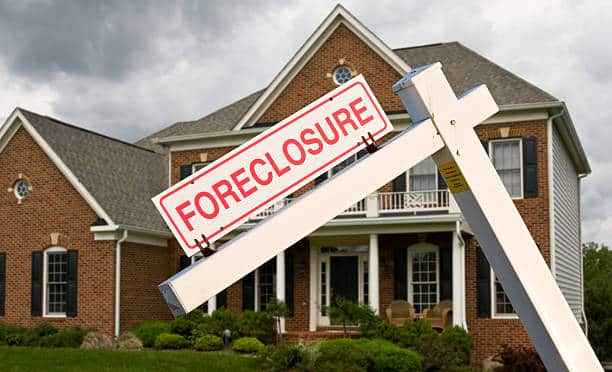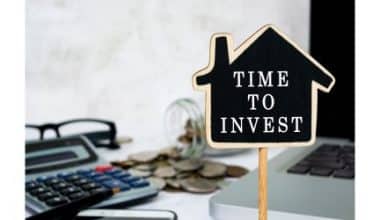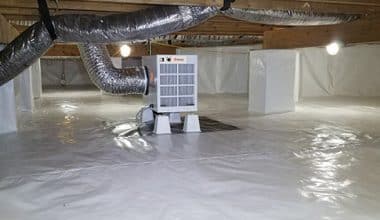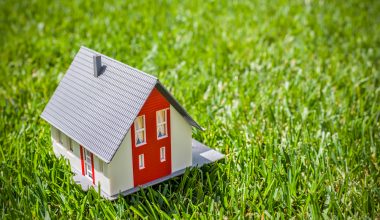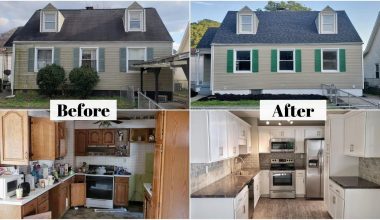If you’re new to the real estate game, you probably have encountered the phrase “House foreclosure” but having invested time in learning what it’s about. Thankfully you’re here, What you’re about to learn will benefit you in the long run especially if you’re looking to make something huge out of real estate investment.
House foreclosure is real and legit. It’s not a scam because foreclosure homes are mostly available in almost all real estate firms. But it’s never so easy to find a foreclosure house for sale.
Buying Foreclosure homes is arguably the best way to get a good deal in real estate. But then, anything that has to do with foreclosure can be complicated.
Whether you want to use the property yourself or you want to use it as an investment property, you need to understand how it really works before buying it. This will help you minimize loss and time-wasting. Read through to find out how a foreclosure home works in the real estate world.
What is a Foreclosure?
When a mortgage lender takes possession of a property, this is known as foreclosure. A home is under foreclosure when and where it is recorded as such, which indicates that the lender is the legal owner of the residence.
House Foreclosure
House foreclosure is a process whereby you legally own a home when the homeowner failed to pay the mortgage loan or has violated any of the mortgage terms. This allows the lender to recover the total sum owned by mortgage default by taking ownership of the mortgaged property or selling the property. Meanwhile, the average number of days for foreclosure is 673 but it varies by state.
Example of foreclosure includes short sales, pre-foreclosure, real estate owned, sheriff’s sales, etc. And again, governments are sponsoring house foreclosure with many financing options.
House Foreclosure Sales
This is to explain how foreclosure works. Firstly, the legal basis for the foreclosure process is a mortgage or fed-of-trust contract. This allows the lender to use a property as collateral if the borrower fails to meet the condition of the loan agreement.
The foreclosure process begins when a borrower defaults or skips at least one mortgage payment. Though like said earlier, foreclosure varies by state. Once the default is obvious, the lender subsequently sends a missed payment notice, indicating that the payment for that month has not been received.
And then, once the borrower misses two payments, the lender will send a letter known as a “demand letter”. While this is a more serious situation than a missed payment notice, the lender may be ready to work with the borrower to make plans to make up for the missed payment.
After 90 days of missed payments, the lender delivers a notice of default to the borrower. And then, the lender’s foreclosure department receives the loan. Meanwhile, the borrower is usually given another 90 days to make up the payments and get the loan reinstated (this is called the reinstatement period).
And, if the homeowner doesn’t make up the reinstatement period, the lender will be behind processing for foreclosure.
Buying House Foreclosure
Looking to buy a foreclosure home? Here are good places where you can find a foreclosure property:
- Multiple listing service(MLS) publications and websites,
- Online real estate searches, bank offices, and websites.
- Local newspapers
In any case, a foreclosed property may not appear or be listed in local multiple-listing systems, but it may be stated in the property. Meanwhile, you should look into financial institutions such as Bank of America to find a direct source for purchasing a foreclosure home. Also, this great website (homepath.com) focused mainly on selling and buying foreclosure homes.
And finally, you should understand that lenders are selling seized assets through real estate agents across the nation. So don’t be afraid to make inquiries about foreclosures homes from real estate brokers or agents. Meanwhile, some real estate agents specialized in foreclosure properties only.
Five Types of Foreclosure and their Buying Processes
The following are five different types of foreclosures and how to buy them
#1. Pre-foreclosure:
A property is said to be in pre-foreclosure when the mortgage lender notifies the borrowers that they are in arrears. But this is before the property will be auctioned off to buyers. Now, if the homeowner can sell their home during this time, they may be able to avoid foreclosure and all of the negative consequences that foreclosure will have on their credit history or future opportunities.
As a result of this, many homeowners tend to negotiate at this stage because negotiations are allowed. The city courthouse and county are places where pre-closures listings are commonly found. Furthermore, several web services like foreclosure.com and homeopath.com are always listing homes in the pre-foreclosure stage.
#2. Short Sale:
This happens when a lender is willing to accept less for a property than what is owed on a mortgage. A lender does not have to agree to a short sale if the borrower is not in default on their mortgage payments. However, they must have demonstrated that they have experienced financial hardship, such as job loss.
Buying a short-sale property is similar to buying a standard home in many ways, but the contract language will differ, stating that the terms are subject to the lender’s approval. Moreover, a bank’s response to a short-sale offer could take several months, making the process far lengthier than a typical purchase. Many real estate websites, including individual firms and listing services, are available.
#3. Sheriff’s Sale Auctions:
In sheriff’s sale auctions, this occurs after the lender has alerted the borrower of the default and given the borrower a grace period to catch up on mortgage payments. Then the lender has every right to hold an auction. The purpose of an auction is for the lender to get reimbursed quickly for a defaulted loan.
These auctions are frequently held on the steps of a city’s courthouse and are overseen by local law officials. At a publicly advertised location, date, and time. The property is auctioned to the highest bidder. By searching for “sheriff sale auctions” in local newspapers and various online sources, you can find these notices.
These auctions are frequently held on the steps of a city’s courthouse and are overseen by local law officials. You can find more about sheriff’s sale auctions by searching about them on the online search engine or through any local newspapers.
#4. Bank Owned
If a property does not sell at auction, it reverts to the bank and becomes a real estate-owned (REO) property. The REO department of the institution is often in charge of them. RealtyTrac, for example, is an online platform that has a large listing of bank-owned properties that may be searched by city, state, or zip code.
#5. Government-owned property
Some properties are purchased with loans guaranteed by the Federal Housing Administration (FHA) or the Department of Veterans Affairs of the United States government (VA). When these homes fall into foreclosure, the government seizes them and sells them through federally licensed brokers.
To purchase a government-owned property, you must contact a government-registered broker. Buyers can look into the pros and cons of various options.
Buyers can look into their options on the US Department of Housing and Urban Development’s website (HUD).
Six Easy Steps to Purchasing Foreclosed Homes
#1. Find a representative
This can be a real estate agent or mortgage broker who has good knowledge about how foreclosure homes work. Because they are specialized and can dedicate dangers and risks. Finding them is the very first step you need to take when you want to buy a foreclosure home.
#2. Get your mortgage pre-approved
Because the majority of real estate investors always pay cash for a foreclosed home they make this market extremely competitive. So, if you can’t afford the property upfront, you’ll have to finance it. You should be pre-qualified or pre-approved for a loan and understand how much you may borrow before you commit to buying any foreclosed properties.
#3. Make research and shop around
It’s crucial to understand what kind of property your budget will allow you to purchase. As a result, you should shop and thoroughly understand your options. You can also compare a home to similar properties in the same area. You can look for foreclosed properties in your region on sites like foreclosure.com.
#4. Negotiation stage
It’s time to make an offer. And this offer means working with your broker to negotiate a price with the property owner or lender. You might place a bid at an auction depending on the circumstance. Craft your offer letter and get every other thing ready.
#5. Get a house inspector
The job of an inspector is to help you decide. They will help you inspect the house to see if the price is worth it.
#6. Closing the deal
This is the final stage when everything has been put in place. You need to make the necessary payment and get the necessary documents. You’ll also need to sign where necessary and then close the final negotiations.
What are the Benefits of Buying A Foreclosed Home?
One of the main benefits of buying a foreclosed home is that it almost always cost less than other homes in the province or they are listed below market value. This is due to the fact that the lender sets the price, and the lender wants to get the home off of their books as quickly as possible. even if the bidding and purchasing process for a foreclosed home can be a little bit different, you should still be able to choose from a few different lending alternatives as long as the auction is not limited to cash payments exclusively.
You have the option of obtaining a conventional loan, a loan guaranteed by the government in the form of a VA loan, an FHA loan, or a USDA loan in order to finance the purchase of the home you are considering. Homeownership can be made more cheap by the use of loans backed by the government; but, if the property is destroyed, the government may require repairs to be made.
Wht are the Problems of Buying a Foreclosed Home?
When people are aware that they are likely to lose their home to foreclosure, the motivation for such people to keep their homes in good shape is severely diminished. In the event that something breaks, the homeowner is not going to spend money to fix it, which means the situation will only get worse over time. When you acquire a home that has been through the foreclosure process, you take on the responsibility of repairing any issues that the property may have. That said, you should not buy a foreclosed house if you don’t have a seperate cash to invest in repairs.
Furthermore, it is possible for a home to be in the process of being legally foreclosed on, but this does not entail that no one is currently residing in the home. The fact that many foreclosed properties remain uninhabited for months or even years at a time makes them vulnerable to being occupied by squatters. If you purchase a home that already has squatters occupying it, you are obligated to properly evict them, even if the individual or individuals in question have no legal right to the property. This might take several months and result in attorney bills of several thousand dollars.
How to Buy Foreclosure Homes With No Money
The biggest problem faced by many people who want to buy a foreclosure home is a lack of funds.
Well, there are various ways you can buy foreclosure homes without paying cash. Though, it might not be the best option recommended for buying foreclosed homes. But then, it’s one of the alternatives when you don’t have cash but want to buy a foreclosed home.
Start by looking for properties that have been repossessed by the Federal Housing Administration (FHA). The two ways through which you can purchase a foreclosed home without money are utilizing the FHA loan or using of credit card.
House Foreclosure in New Jersey
If you are looking for house foreclosure in New Jersey, here is a list of websites where you can find foreclosed homes In New Jersey.
- https://www.homes.com/new-jersey/foreclosed-homes-for-sale/
- https://www.realtor.com/foreclosures/New-Jersey
- https://www.zillow.com/center-for-education-nj/foreclosures/
- https://www.nolo.com/legal-encyclopedia/new-jersey-foreclosure-procedures.html
House Foreclosure Auctions
Investopedia explained that this might be risky but is still an alternative when buying a foreclosure house. In other words, buying homes from a foreclosure auction has been a popular method for acquiring discounted real estate.
What Is the Difference Between a Closure and a Foreclosure?
Personal loan closure entails completely repaying a personal loan and canceling the account. A normal closure occurs when a borrower closes a loan at the end of the loan term. If they close it before the term is up, it is referred to as a pre-closure or foreclosure.
What Is Another Word for Foreclosed?
This article contains 14 synonyms, antonyms, and related words to foreclose, including preclude, bar, deprive, prevent, rule out, and shut out.
What Is a Foreclosed Asset?
Foreclosed assets are real or personal property that the bank has acquired either (a) through purchases at sales under judgments, decrees, or mortgages where the property served as security for prior contractual debts, or (b) through conveyance in satisfaction or partial satisfaction of prior negotiated debts.
Conclusion
Investing in a foreclosed home can be a smart move. You will, however, need to understand how to buy a foreclosure and seek the assistance of a knowledgeable real estate agent. Consider the expense of repairs when preparing your budget. Many foreclosed homes are in poor condition and may require extensive repairs.
